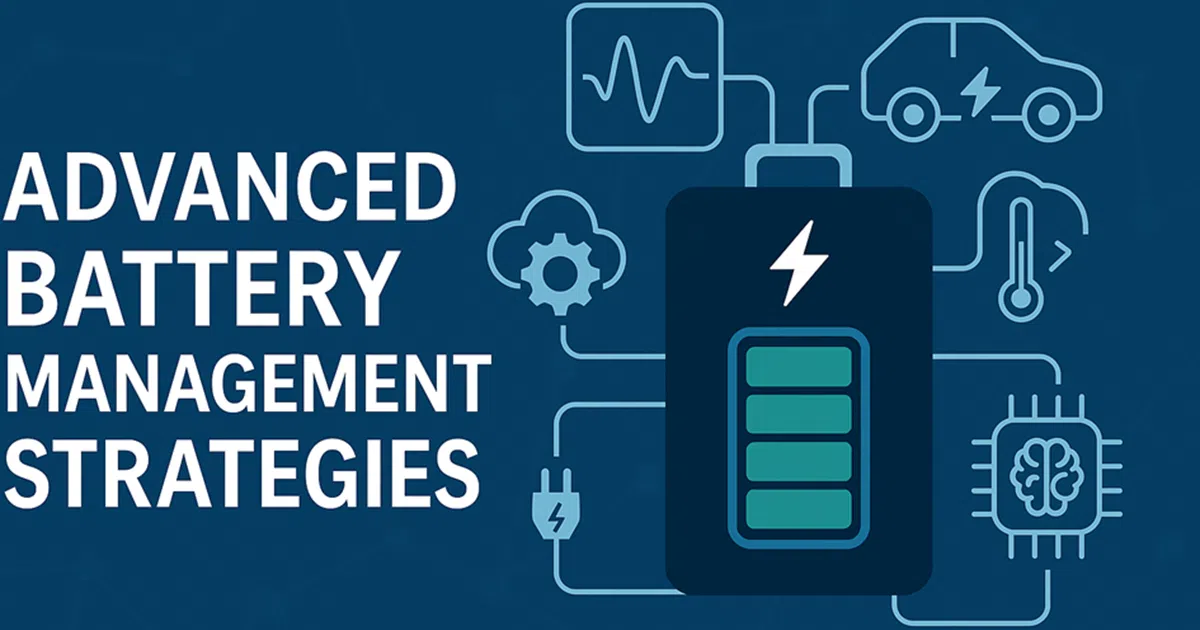Advanced Battery Management Strategies
A special issue of Energies (ISSN 1996-1073). This special issue belongs to the section "D2: Electrochem: Batteries, Fuel Cells, Capacitors".
Deadline for manuscript submissions: 5 December 2025 | Viewed by 1055

Special Issue Editors
Interests: power system; energy storage; artificial intelligence; battery aging modeling; energy management system
Interests: novel power signal; lithium-ion batteries; non-contact voltage measurement
Interests: energy storage; superconducting magnetic energy storage; flux pump; artificial intelligence
Special Issue Information
Dear Colleagues,
Advanced battery management strategies are crucial for optimizing the efficiency, safety, reliability, and lifespan of batteries in various applications, including electric vehicles and renewable energy storage systems. With the growing global emphasis on sustainability, developing intelligent and optimized battery management systems (BMS) is crucial for enhancing energy storage performance and integrating with renewable energy sources. Innovations in battery diagnostics, state-of-health estimation, predictive control algorithms, and adaptive management techniques are significantly advancing battery technology, enabling the broader adoption of clean energy solutions.
This Special Issue invites original research and reviews focusing on advanced methods, algorithms, and technologies in battery management. Topics of interest include, but are not limited to:
- Intelligent algorithms for battery state estimation and fault diagnostics;
- Predictive and adaptive battery management systems;
- Machine learning applications in battery health prognosis;
- Optimization of battery management for electric vehicles and stationary storage;
- Thermal management strategies for improved battery safety and performance;
- Integration of advanced battery management with renewable energy systems;
- Novel materials and sensors enhancing battery management accuracy.
Dr. Tianjing Wang
Prof. Dr. Ling Fu
Dr. Lingfeng Zhu
Dr. Xizhen Xue
Guest Editors
Manuscript Submission Information
Manuscripts should be submitted online at www.mdpi.com by registering and logging in to this website. Once you are registered, click here to go to the submission form. Manuscripts can be submitted until the deadline. All submissions that pass pre-check are peer-reviewed. Accepted papers will be published continuously in the journal (as soon as accepted) and will be listed together on the special issue website. Research articles, review articles as well as short communications are invited. For planned papers, a title and short abstract (about 250 words) can be sent to the Editorial Office for assessment.
Submitted manuscripts should not have been published previously, nor be under consideration for publication elsewhere (except conference proceedings papers). All manuscripts are thoroughly refereed through a single-blind peer-review process. A guide for authors and other relevant information for submission of manuscripts is available on the Instructions for Authors page. Energies is an international peer-reviewed open access semimonthly journal published by MDPI.
Please visit the Instructions for Authors page before submitting a manuscript. The Article Processing Charge (APC) for publication in this open access journal is 2600 CHF (Swiss Francs). Submitted papers should be well formatted and use good English. Authors may use MDPI's English editing service prior to publication or during author revisions.
Keywords
- battery management systems (BMS)
- state-of-health estimation
- state-of-charge estimation
- predictive control algorithms
- intelligent diagnostics
- adaptive management techniques
- battery prognostics
- electric vehicle batteries
- renewable energy integration
- thermal management
Benefits of Publishing in a Special Issue
- Ease of navigation: Grouping papers by topic helps scholars navigate broad scope journals more efficiently.
- Greater discoverability: Special Issues support the reach and impact of scientific research. Articles in Special Issues are more discoverable and cited more frequently.
- Expansion of research network: Special Issues facilitate connections among authors, fostering scientific collaborations.
- External promotion: Articles in Special Issues are often promoted through the journal's social media, increasing their visibility.
- Reprint: MDPI Books provides the opportunity to republish successful Special Issues in book format, both online and in print.
Further information on MDPI's Special Issue policies can be found here.








